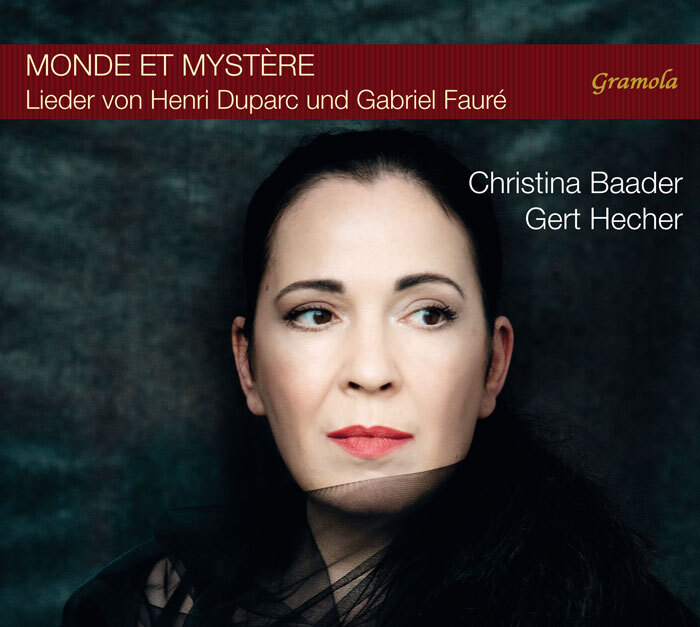Die aus Stuttgart stammende Mezzosopranistin Christina Baader singt eine Auswahl von Liedern von Henri Duparc und Gabriel Fauré. Die Lieder basieren auf Gedichten berühmter französischer Poeten wie Paul Verlaine, Charles Baudelaire, Armand Silvestre, Théophile Gautier, René-François Sully-Prudhomme oder Jean Lahor.
Mit ihrer gut geführten, samtweichen und hoch sensiblen Stimme erkundet die Sängerin die Kompositionen mit großer Sensibilität, enthüllt ihren dramatischen Inhalt, ihre Emotionen, nimmt uns mit in Regionen, in denen alles Rationale kein Recht mehr hat. Ihre Stimme kann in vielen Liedern eine schöne Sinnlichkeit und Intimität mit einem Aroma von Nostalgie und Melancholie herstellen. Ihr Stilgefühl erlaubt es ihr, ihre Stimme diskret in den Dienst der Werke zu setzen, ohne ins Primadonnenhafte zu verfallen. Die Vokalwerke werden mit äußerster Subtilität und einem guten Gespür für den Inhalt gesungen.
Einen guten Anteil am Eindruck, den dieses Programm hinterlässt, ist dem Pianisten Gert Hecher zuzuschreiben, dessen Spiel ungemein unterstützend ist. Er benutzt zwei Flügel von 1868 bzw. 1879 aus dem Haus der Klaviermanufaktur Érard in Paris, die dem Ganzen einen ganz besonderen Charakter geben.
Stuttgart-born mezzo-soprano Christina Baader sings a selection of songs by Henri Duparc and Gabriel Fauré. The songs are based on poems by famous French poets such as Paul Verlaine, Charles Baudelaire, Armand Silvestre, Théophile Gautier, René-François Sully-Prudhomme and Jean Lahor.
With her well controlled, velvety and highly sensitive voice, the singer explores the compositions with great sensitivity, revealing their dramatic content, their emotions, taking us into regions where all rationality is no longer justified. Her voice is able to create a beautiful sensuality and intimacy in many songs with an aroma of nostalgia and melancholy. Her sense of style allows her to discreetly place her voice at the service of the works without becoming dominant. Thus, these vocal works are sung with great subtlety and a good feeling for the content.
Much of the impression left by this program is due to pianist Gert Hecher, whose playing is incredibly supportive. He uses two grand pianos from 1868 and 1879 from the Érard piano factory in Paris, which give the whole a very special character.


















